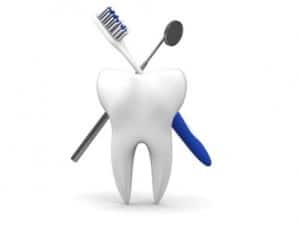 This is not the first word nor the last word about nutrition, but it has good advice and information.
This is not the first word nor the last word about nutrition, but it has good advice and information.
Teeth go through a cyclical process of ‘mineralization’ or building and strengthening of tooth and bone, and ‘demineralization’ or loss of tooth minerals. Quite literally the food we eat will either help build strong teeth and bones, or damage the strength of teeth and bones. More often than not, tooth decay and oral infections stem from unhealthy lifestyle habits that have caused more demineralization than re-mineralization.
To maintain good dental health, a healthy diet and good nutrition is imperative. In order to get the best results it is important to draw from all of the food groups; grains, vegetables, fruits, milk, meats/beans and to monitor the intake of oils and fats. A balanced diet is very important in promoting healthier teeth.
Preventing Plaque with Good Foods
Firm, crunchy foods such as apples, raw celery and carrots can help stimulate the gums and remove plaque. Fresh fruit has both acidic and sweet qualities and while chewing food, the production of saliva helps reduce the resulting acidity and wash away food particles. Apples in particular, may help increase the flow of saliva and help to wash away cavity-causing bacteria. Cheese actually works to balance oral pH levels and helps to reduce harmful bacteria in teeth and gums. It also rebuilds tooth enamel, and produces saliva, which helps to flush and keep the mouth clean.
Monitoring Sugar Intact – Avoiding Bad Sugars
Fresh fruits contain natural sugars that are much less harmful than the sucrose found in processed foods and/or table sugar. Brushing immediately after eating sweets containing processed sugar products helps to help prevent tooth decy.
Healthy Choices for Healthy Teeth
Whole grains found in breads and cereals will provide important vitamins for healthy teeth, dairy products which provide calcium and Vitamin D will strengthen the teeth, and fruits and vegetables provide Vitamin C, Vitamin A and calcium for healthy gums and protect tooth enamel. Lean meats, fish, poultry and beans provide iron and protein and magnesium all of which promotes healthy teeth.
Food choices that are more nutritious and best for maintaining good oral health include: fruits high in Vitamin C such as kiwis, berries, melons, pineapple, pears, tomatoes and oranges; raw vegetables such as carrots, green leafy salad greens, kale, celery, and onions (which contain powerful antibacterial sulfur compounds known to kill harmful bacteria); vitamin A rich vegetables such as brussel sprouts, peas, pumpkins, spinach, and broccoli; calcium rich dairy products such as yogurt, cheese; nuts and grains such as cereal, pumpkin and sunflower seeds as well as sesame seeds which are particularly high in calcium; and meats such as chicken and turkey; fungi such as shiitake mushrooms which contain lentinan, that has been shown to stop plaque forming bacteria. And, finally wasabi is one condiment we can recommend due to its tendency to inhibit the growth of cavity-causing bacteria
Food choices to avoid include: candy, sugary gum, sticky foods like jelly beans or caramels, sweetened fruit juice, sugary drinks and sodas; traditional desserts such as cake, cookies, doughnuts, pies; condiments such as honey, jams, jellies and table sugar. Curiously, sugary foods eaten occasionally as part of, or following the main meals, are less harmful to teeth than those eaten between meals. Also, be cautious about starchy foods and breads like potato chips and snack crackers, particularly when eaten between meals as they tend to stick to the teeth and will contribute to plaque build-up if not brushed away immediately. The reason for this is that the natural bacteria in the mouth breaks food down into a form of sugar and this byproduct can create cavities and tooth decay.
Clean filtered drinking water is very important for keeping gums hydrated and is an excellent way to stimulate saliva, which in turn will help to flush harmful bacteria that cause plaque and cavities. Rinsing with water helps wash away food particles trapped between teeth and hard to reach places in the mouth. When brushing after a meal or snack is not an option rinsing with water is a helpful preventative, and a good way to keep your mouth healthy.
A Few Final Suggestions
Green tea contains catechins, which is known to kill oral bacteria that can turn sugar into plaque Catechins is also excellent for eliminating bacteria that cause bad breath. And chewing Xylitol gum between meals has been proven to halt and even reverse tooth decay. And lastly, Vitamin D and calcium supplements will help prevent cavities and work to build strong bones and teeth.